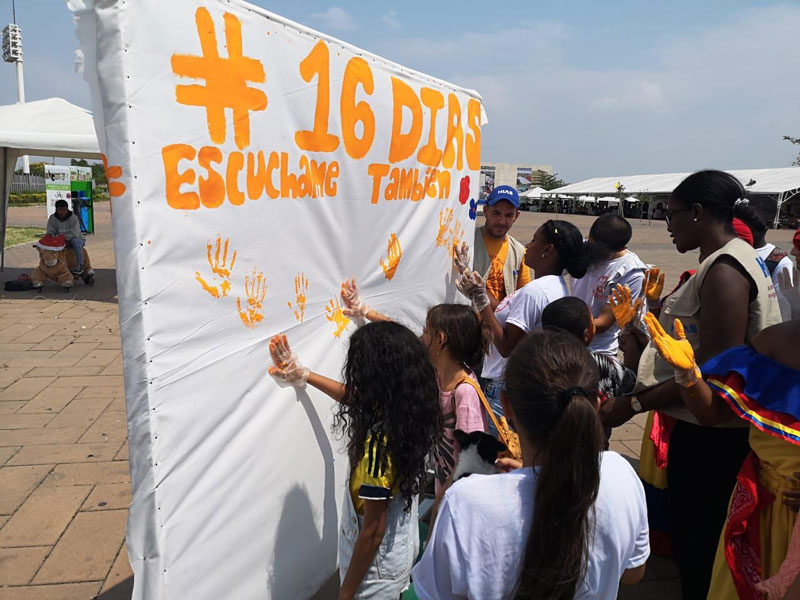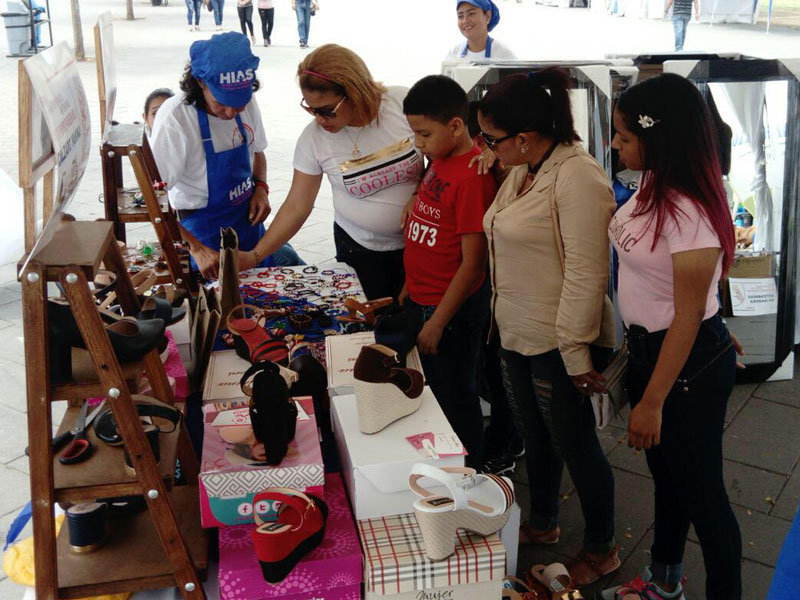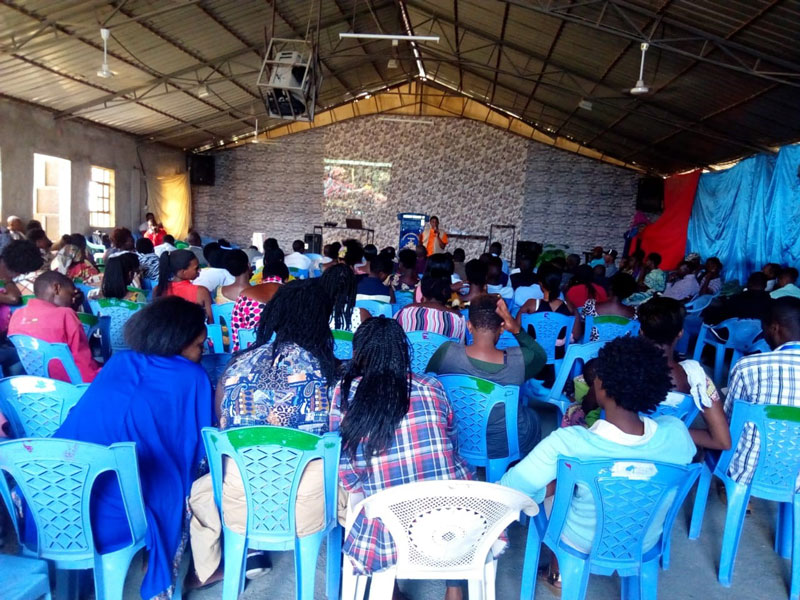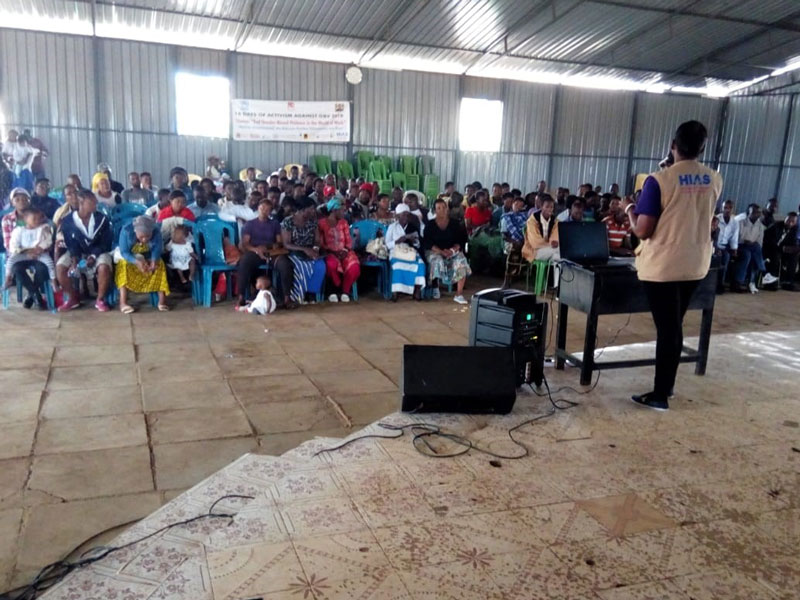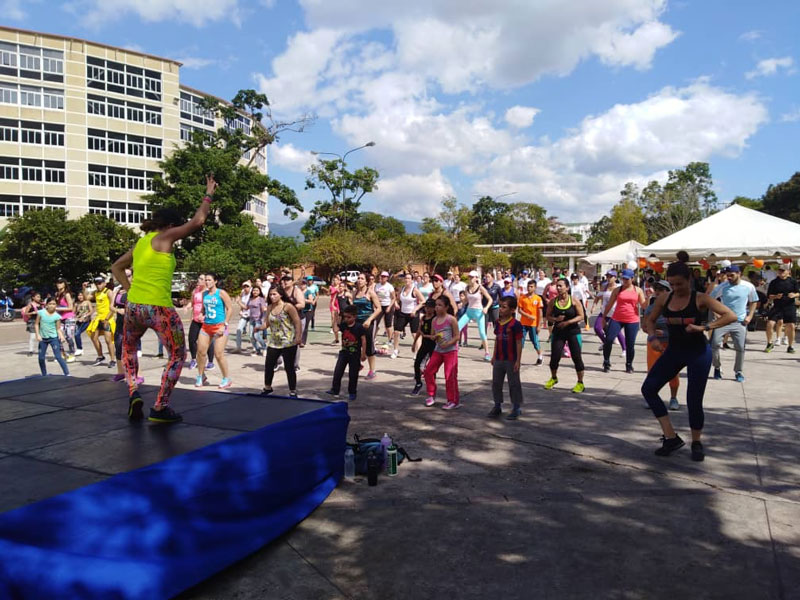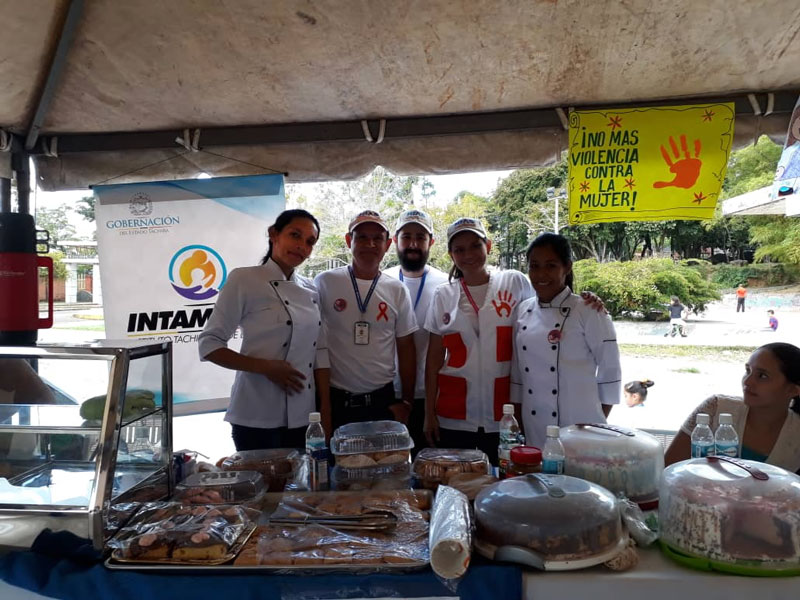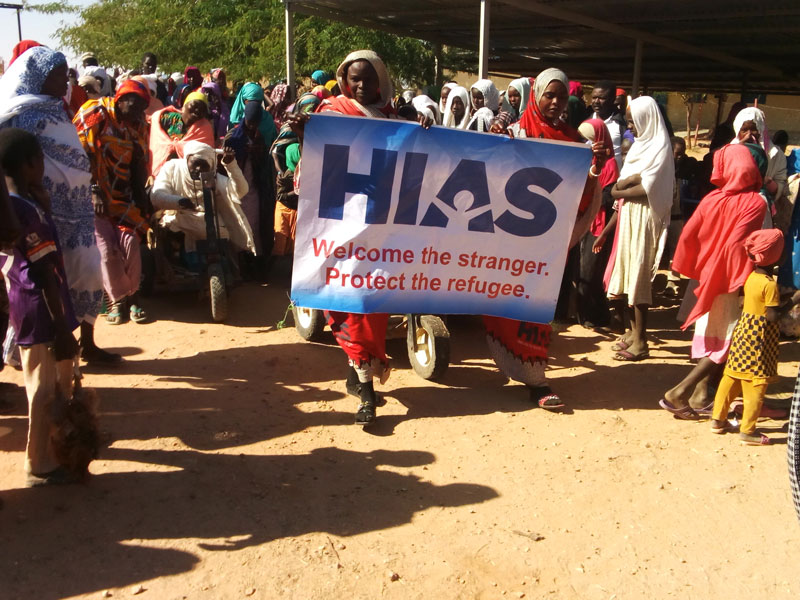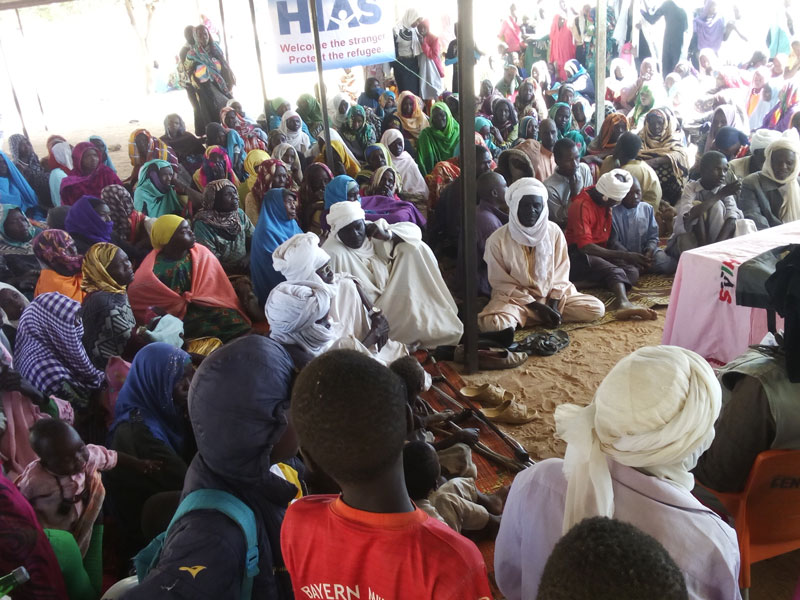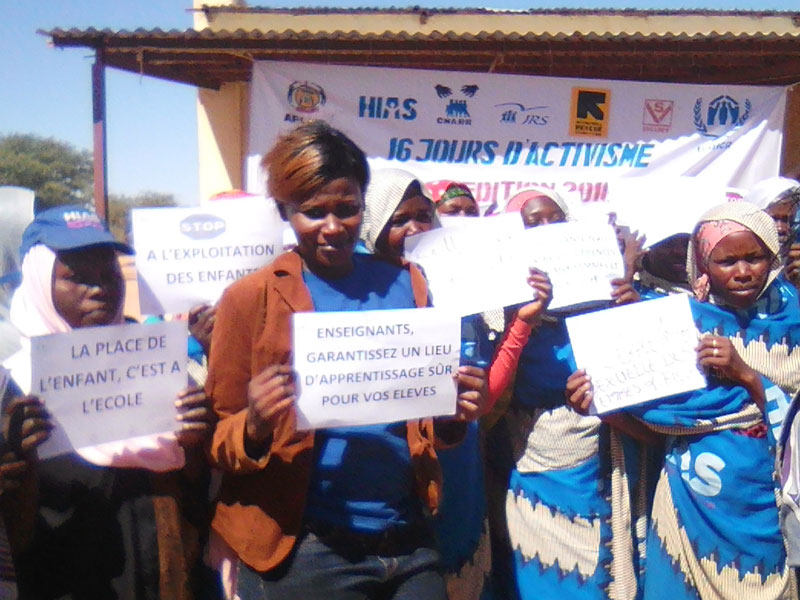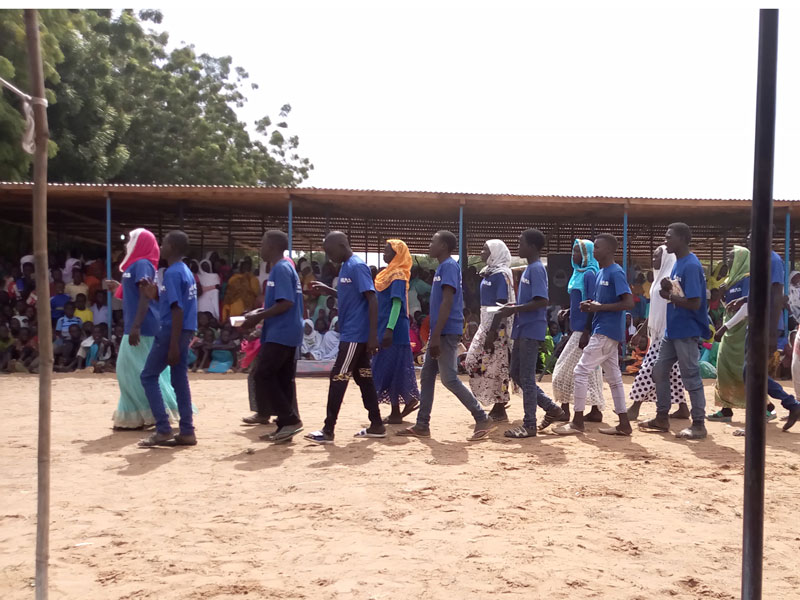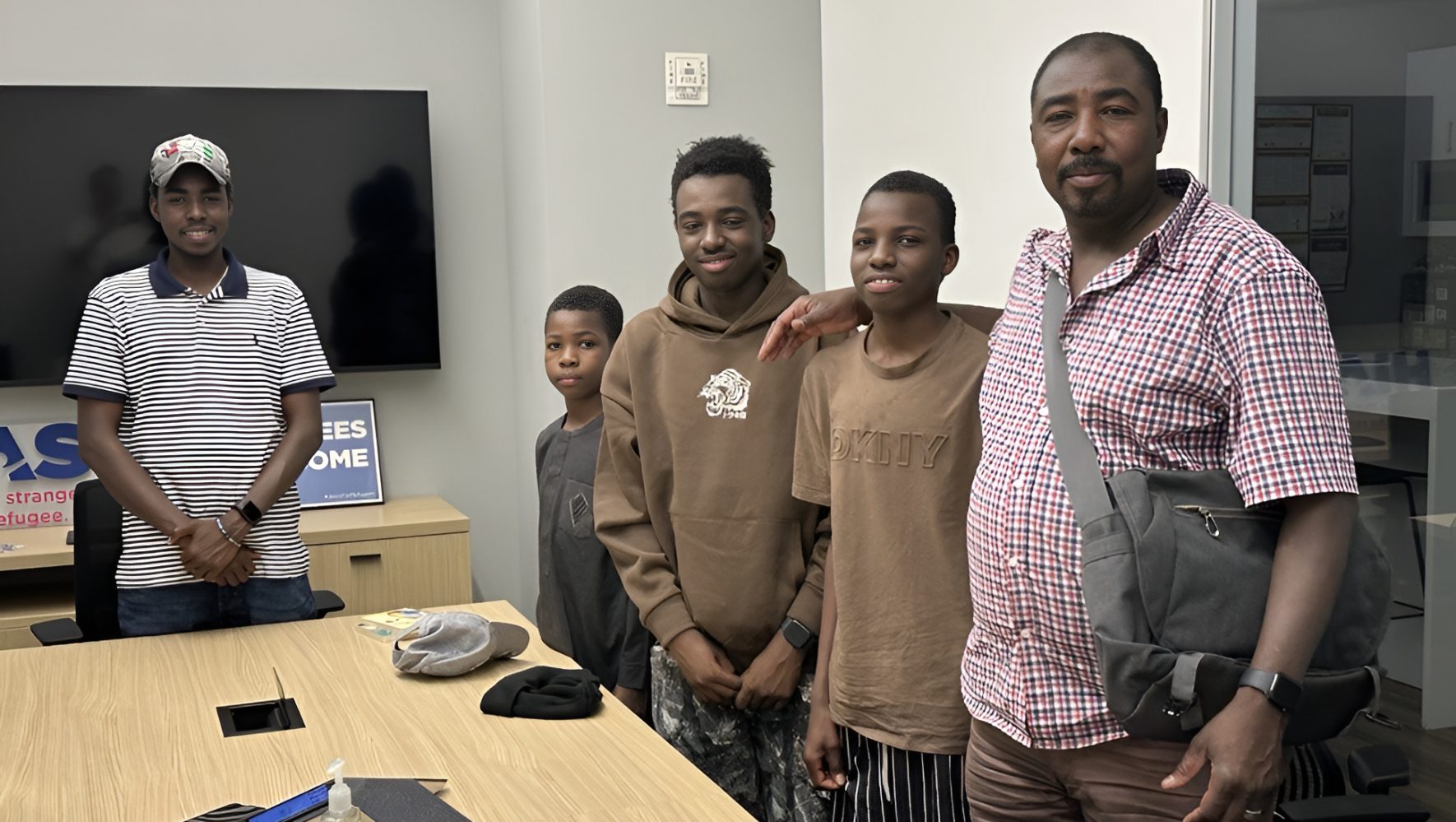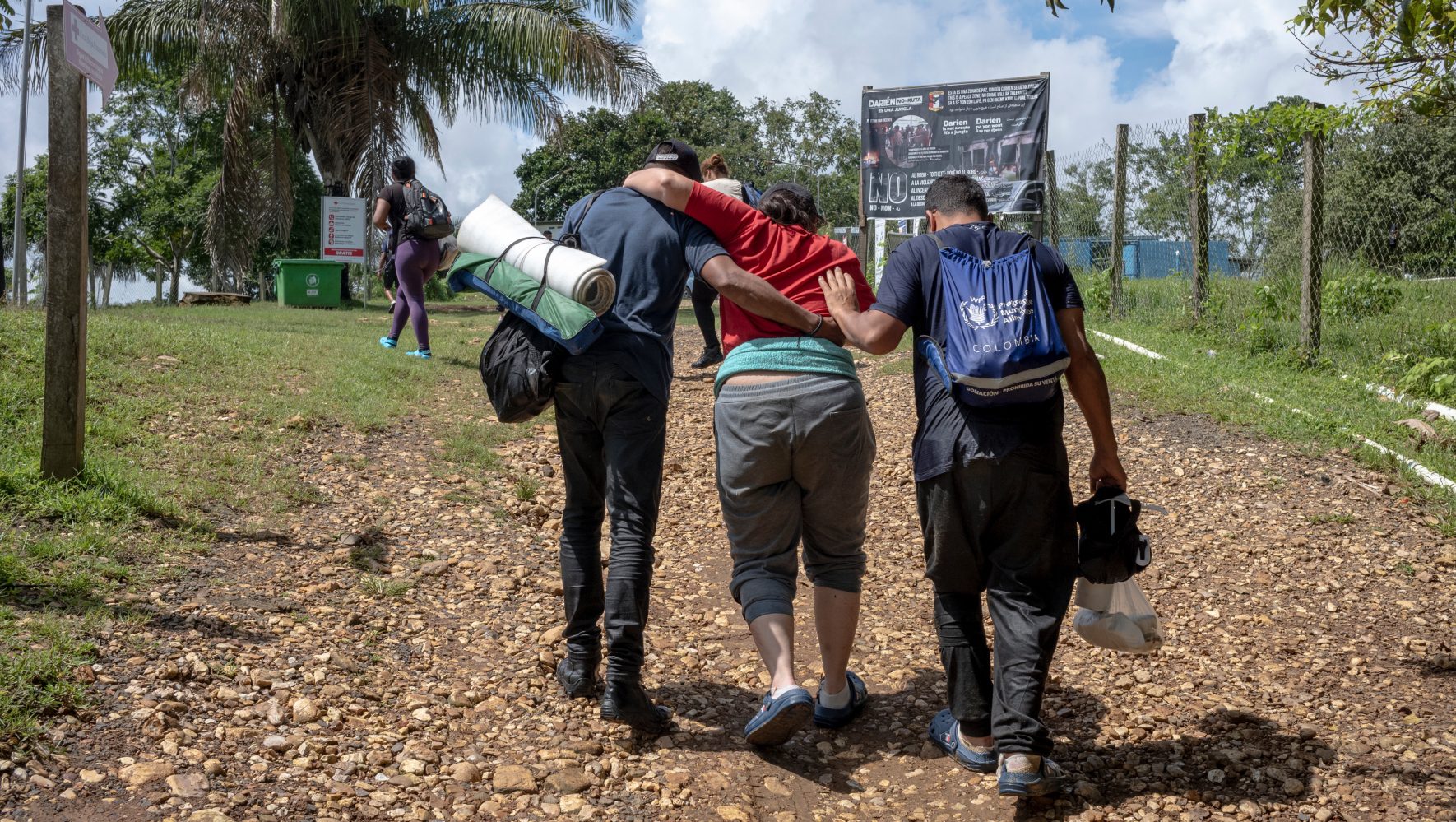HIAS Active in 16 Days Campaign to End Gender-Based Violence
By Sharon Samber, HIAS.org
Dec 14, 2018
It can be a meeting, or a workshop, or a fair, or a parade. Even a Zumbathon. Any of those events can draw attention–and this year, they did– as part of the 16 Days of Activism Against Gender-Based Violence, the international campaign to stop violence against women and girls.
Every year HIAS participates in “16 Days,” the campaign, launched in 1991, that runs from November 25th, the International Day for the Elimination of Violence against Women, to December 10th, Human Rights Day. This year’s 16 Days theme was “End gender-based violence in the world of work.”
Currently, more than 6,000 organizations from approximately 187 countries participate in the campaign, according to the Center for Women’s Global Leadership, which organizes the campaign.
Several HIAS offices held events to call attention to the particular issues of gender-based violence (GBV) among refugee populations.
In Ecuador, HIAS organized an entrepreneurship fair in Guayaquil: ten women entrepreneurs (seven refugee women supported by HIAS, and three local women supported by the Ministry of Industries) participated in the fair and sold their products. The fair, also supported by UNHCR, the Ministry of Foreign Affairs, and the Ministry of Industries and Productivity, showcased handicrafts and regional food. As part of the event, HIAS’ youth group “Unidos sin fronteras” carried out a wall-painting activity: people painted their hands with orange paint and wrote messages against gender-based violence. The local women’s group, “Pa lante con Esperanza,” also participated in the fair with a Colombian dance performance.
This year the annual workshops that HIAS organizes for the DAFI scholars in Ecuador (a program that grants young refugees higher education scholarships), focused on the eradication of gender-based violence. Seventeen DAFI scholars made a commitment to “promote the eradication of gender-based violence in the world of work.”
HIAS Kenya worked in coordination with the GBV working group of the UNHCR Implementing Partners program and the State Department of Gender Affairs. Male and female discussion groups took place in Kawangware and Kayole to highlight how refugees can play a role in prevention of and response to sexual and gender-based violence (SGBV) within their communities.
On December 10, HIAS Kenya commemorated Human Rights Day in the Githurai area, with 163 refugee participants joining the celebration. “The participants were sensitized on their human rights as outlined in the universal declaration of human rights with emphasis on SGBV prevention and response,” HIAS Country Director Lucy Kiama explained.
HIAS Venezuela was busy with over 45 activities taking place across the country during the 16 Days campaign. One activity on the very first day led by HIAS, together with other humanitarian agencies, was a Zumbathon at Metropolitan Park of San Cristobal (Táchira State). Regional government officials attended, and there was dancing for 6 hours. At a livelihoods fair, three beneficiaries from San Antonio (Táchira State) came to sell their products. They sold bread, chocolate cakes, desserts, cookies, and pastries. They have their own baked goods business after receiving support from HIAS.
This year HIAS Chad joined other humanitarian organizations, local authorities, and refugees in marking the 16 Days of Activism against Gender Based Violence. Celebrations included: parades by different groups of refugees; traditional songs and dances; sketches, games, and poems; and focus group discussions. The activities were all focused on human rights, early marriage, SGBV in schools and at the workplace, causes and consequences of SGBV, and support for persons living with disability. There were also displays and sale of items produced by SGBV survivors and women at risk.
During youth group discussions, teens made arguments that sent a clear message, according to Joyce Kanja, HIAS Chad Country Director. “They want to be allowed to pursue their studies and not be forced into early marriage,” Kanja said.
